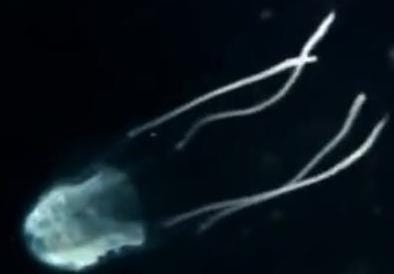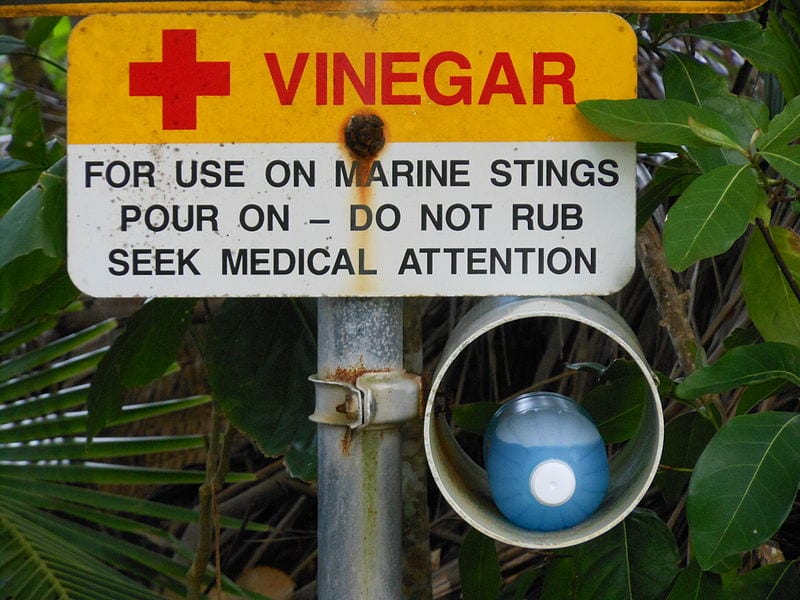If you’ve got an image of a snake in your mind right now, go ahead and wipe that away – because the Australian box jellyfish is the most venomous creature on earth. It’s full of enough deadly venom to kill over 60 people using any of it’s dozens of tentacles and millions of venom-filled hooks.
Their stings are excruciatingly painful and cause skin necrosis, cardiac arrest, and even death after only minutes. Many victims do not survive the attack because the pain causes them to go into shock and drown, and those who do survive deal with scarring and residual pain that can persist for weeks.
Australia, right?

Image Credit: Wikipedia
Now, University of Sydney researchers say they’ve found a way to reverse the venom’s deadly effects.
They’ve published their findings in Nature Communications and caution that, though they believe they’ve found the answer, it’s only been tested on human cells, not an actual living person. Still, professor Greg Neely says, “This is super exciting.”
“We were looking at how the venom works, to try to better understand how it causes pain. Using new CRISPR genome-editing techniques we could quickly identify how this venom kills human cells. Luckily, there was already a drug that could act on the pathway the venom uses to kill cells, and when we tried this drug as a venom antidote on mice, we found it could block the tissue scarring and pain related to jellyfish stings.”

Image Credit: Wikipedia
The researchers used CRISPR, a technique that scientists use to alter genetic material, to knock different genes out of millions of human cells and then studied which cells survived the encounter with the box jellyfish venom.
This isn’t a traditional antivenin made from the process blood of an animal exposed to the venom, but a molecular antidote that, so far, seems to work. It prevented skin necrosis, scarring, and the pain associated with the sting (in mice). More research is needed in order to determine whether it will also be able to stop a potential heart attack induced by the venom.

Image Credit: Wikipedia
It does need to be applied to the skin within 15 minutes of the sting, and researchers hope to develop it into a topical spray, so people who spend time in the ocean could keep a bottle in their beach bag.
The development might not make a big difference for a large number of people, but for those who happen to find themselves on the wrong side of a box jelly’s tentacle, it could mean the different between life or death.






